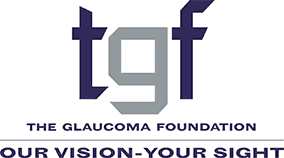~Navigating the Transition: Guide to Choosing Your New Primary Care Doctor~

When your primary care doctor retires, it can be challenging to find a replacement. The process can seem complex, but you can identify a suitable new doctor with a systematic approach and consideration of crucial factors. Below, the Glaucoma Foundation shares some steps to guide you through this transition.
Digitally Organize Your Documents
The first step in finding a new primary care doctor involves digitalizing your medical records. Having all the necessary information about your health history readily available for your new doctor will ensure they can provide appropriate care.
Use a tool to convert to a PDF file. Converting files into a universally accessible format, such as PDF can simplify sharing these documents with potential doctors or healthcare institutions. This practice not only streamlines communication but also allows for a seamless transition of care. Furthermore, having a digital copy of your records at your fingertips empowers you to take control of your health journey.
Verify “In-Network” Status
When choosing a new doctor, it is critical to confirm they are “in-network.” This means they have a contractual agreement with your health insurance company, leading to lower out-of-pocket expenses. Consult with your insurance provider to obtain a list of in-network doctors nearby.
Being “in-network” ensures you get the most out of your health insurance plan and avoid surprise medical bills. Insurance providers often have quality metrics or patient reviews for “in-network” doctors, offering another consideration in your decision-making process.
Ask for Referrals
Personal referrals from friends and family can be beneficial when searching for a new primary care doctor. These firsthand experiences can provide insight into the doctor’s demeanor, office environment, staff friendliness, and wait times.
Everyone’s needs and preferences differ, so consider these personal experiences as part of your decision-making process rather than the deciding factor. Additionally, don’t hesitate to broaden your referral sources by contacting other healthcare professionals you trust, like your dentist or pharmacist. Online patient review platforms can also be a valuable resource.
Examine Their Qualifications
Ensure you examine the qualifications of any prospective doctor. You can check the state medical board’s website for details about the doctor’s licensure and any potential disciplinary actions. Look for board certification, indicating that the doctor has completed extra training in a specific specialty and passed a rigorous exam.
Also, consider the doctor’s experience, particularly in treating any conditions you may have. Don’t overlook the doctor’s communication style and willingness to answer questions, which can significantly impact your comfort level and overall satisfaction with your care.
Consider Proximity
When searching for a new primary care doctor, proximity plays a crucial role in ensuring accessible and convenient healthcare. The importance of proximity lies in the ease of regular appointments, urgent care needs, and overall convenience.
Having a doctor located nearby can significantly reduce travel time and make it easier to schedule routine check-ups or address any unexpected health concerns promptly. Proximity also fosters a stronger doctor-patient relationship, allowing for better communication and a deeper understanding of individual healthcare needs.
Finding a new primary care doctor when yours retires can be a complex process, but by taking a systematic approach, you can ensure a smooth transition. Start by digitalizing and organizing your medical records for easy access and sharing. Verify potential doctors “in-network” status to avoid high out-of-pocket costs. Seek personal referrals and consider your unique health needs to find a doctor who can provide personalized care. Lastly, thoroughly examine their qualifications to ensure they are fit to handle your health concerns. Remember, this may take time and patience, but it’s a crucial step in managing your health.
Article written by Camille Johnson
